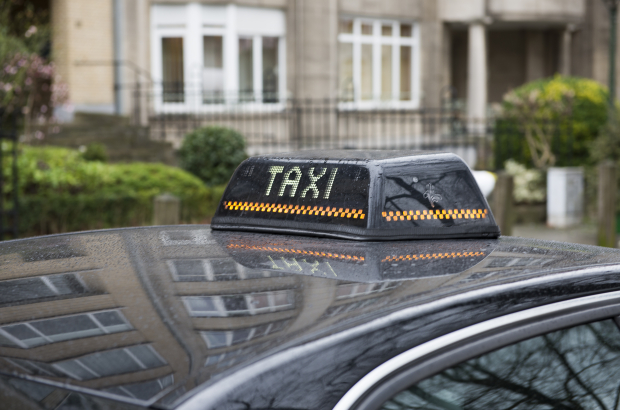- Daily & Weekly newsletters
- Buy & download The Bulletin
- Comment on our articles
Brussels taxi industry is in dire straits, study says
A report by consultancy firm Deloitte paints a grim picture of the current state of the Brussels taxi sector. The report states that the sector is not profitable, is scarred by poor working conditions and therefore has difficulty finding enough drivers. The study was ordered by the Brussels government and will be used to help reform the taxi industry.
The study, ordered by the region in 2018, shows an industry in a dire situation: exceptionally low wages, tough working conditions, a bad image and an economic model that is no longer profitable.
In the study, it is shown that journeys made by taxi drivers over the course of a day are not enough to cover costs. On average, a driver’s gross monthly income is €1,086.50. This often leads to the employer paying part of the wage themselves in order to achieve the minimum wage.
Combined with the harsh working conditions and working shifts that routinely amount to 11 hours behind the wheel, this makes the job unattractive. The result, according to the report, is a lack of taxi drivers.
In addition, the current economic model is no longer profitable for taxi operators, Deloitte says in its study. Even if costs are reduced by increasing the number of drivers for the same vehicle, the business model is still loss-making.
Analysts therefore suspect the existence of a black market. It is estimated that the sector is facing about 5% in undeclared work.
The driver-driven vehicle rental services, such as Uber, seem to be doing better than taxi services, Deloitte reveals. "Electronic platforms like Heetch or Uber offer significantly sharper fees with their technologically lighter governance system and intelligent pricing," it says. "Uber's customers also indicate that the service is high quality and consistent."
The study also provides some points on how the taxi industry could improve. Of the 1,265 taxis in Brussels, only 97 are equipped to transport wheelchair users. "Increasing this supply could be a first step because demand is growing strongly," it says.
Deloitte also recommends uniformising the rules for driver-driven rentals on the one hand, and for taxi services on the other. In the past, the former Economic and Social Council of Brussels – today Brupartners – gave a negative opinion on a taxi plan that wanted to standardise these rules. The Council proposed to maintain the split between taxis and chauffeur-driven cars.
The Brussels region says that a new plan for the taxi industry is being prepared as a result of the coalition agreement. The aim is to subject both taxi drivers and the operators of chauffeur-driven rental services to the same training.
No proposal on the possibility of uniformising the statutes is yet on the table. Deloitte's study will be examined by Brupartners on 17 December. The report will then be submitted to the Brussels parliament.


















